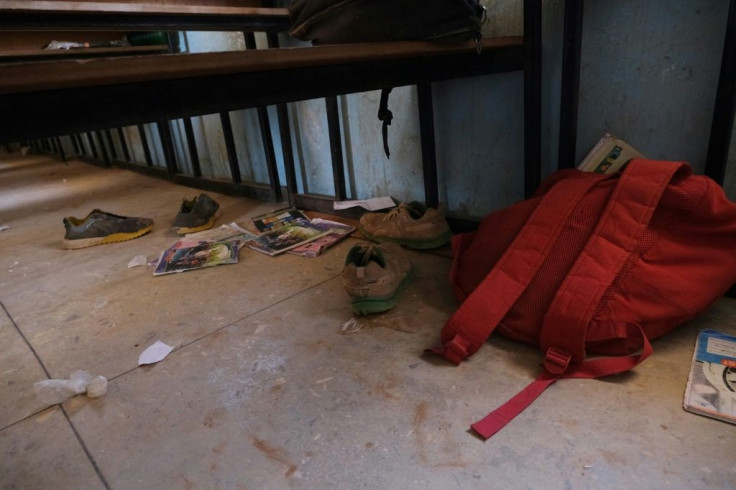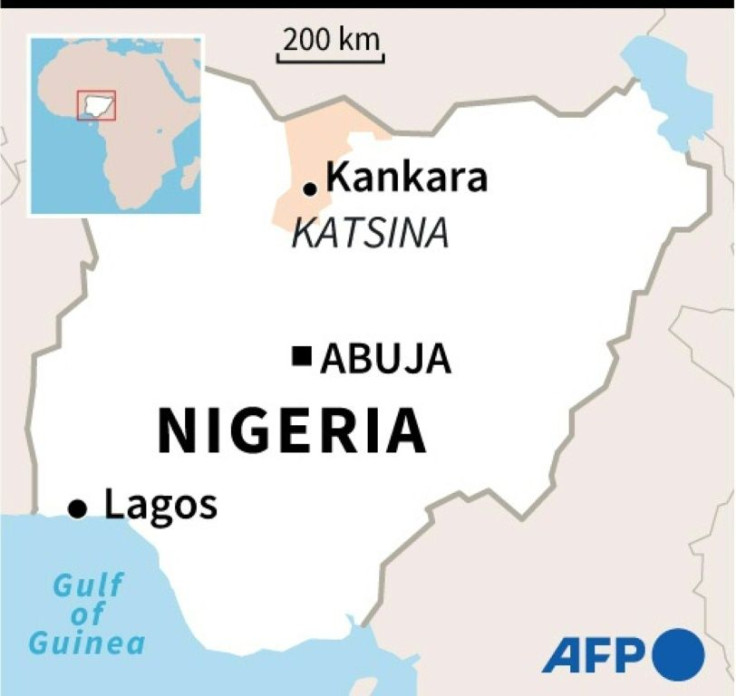Nigerian Kidnappings A Sign Of Boko Haram Expansion, Say Experts
Nigeria's dreaded Boko Haram has sounded a grim warning in claiming responsibility for a mass kidnapping in the country's northwest, analysts say.
Hundreds of students were seized by gunmen last Friday from a school in Katsina state.
The shocking operation instantly revived memories of the abduction of 276 schoolgirls in Chibok, in the northeastern state of Borno, in 2014.
"It's a terrible political statement," said Bulama Bukarti, an analyst in sub-Saharan Africa at the Tony Blair Institute.

"It is evidence showing that the jihadist group is now in the northwest," hundreds of miles (kilometres) from its birthplace, he said.
The attack also acted as reminder of President Muhammadu Buhari's vows to wipe out Boko Haram -- it coincided with a visit to Katsina, his home state.
Until now, Boko Haram and its rival, the Islamic State in West Africa Province (ISWAP) group, had waged an insurgency in northeastern Nigeria and neighbouring Cameroon, Chad and Niger, killing over 36,000 people and displacing some two million.
A four-minute recording released on Tuesday featured a voice resembling that of elusive Boko Haram leader Abubakar Shekau, who claimed the abduction.

"I am Abubakar Shekau and our brothers are behind the kidnapping in Katsina," said the recording, sent to AFP through the same channel as previous messages from Boko Haram.
"We carried out the Katsina attack for the religion of Allah to be supreme and to debase unbelief".
Yan Saint-Pierre, an analyst at the Modern Security Consulting Group, said with this attack Shekau wanted to "display he was all-powerful and not only confined to his zone."
Military spokesman General John Enenche spokesman told Channels TV on Monday that 333 pupils were unaccounted for but local sources told AFP that more than 500 students were captured.

The region has suffered attacks by armed groups -- called "bandits" by Nigerian authorities -- with hundreds of assailants kidnapping both people and cattle.
But these attacks were not prompted by religious ideology and were simply for ransom.
Jacob Zenn, a researcher at the Washington-based Jamestown Foundation, said there was "a growing alliance between the bandits in the north west and the jihadist group in the north east".

"There are various videos released by the western Nigerian militants showing their allegiance to Shekau," he said.
"Even Nigerian intelligence sources have been observing there is logistical network," he said, adding that there were also "financing networks".
Others saw it as an attempt to stay in the international limelight. The 2014 Chibok kidnapping hogged media headlines all over the world -- more than half of the abducted girls are still missing.
"Chibok is what catapulted Boko Haram to international media attention," Bukarti said.
"The Chibok moment has died now, they want to get another incident" to stay in the spotlight, he said.
Security experts voiced fears that the jihadists had now spread their tentacles across a huge area, stretching from the edge of the Sahara to Lake Chad.
"The northwest is situated between the northeast, where Boko Haram operate, and the Sahel, where other jihadist groups operate," Zenn said.
"If that section of the country falls into jihadism that would connect jihadism from the Lake Chad region to the Sahel."
The attack also shows up the inability of the army to face off the Boko Haram.
"It is a symbol of the state's weakness to guarantee the security of its citizens," Saint-Pierre said.
Critics of the army had already stepped up verbal attacks on the army after Boko Haram killed at least 76 farmers earlier this month.
The failures are a major embarrassment for Buhari, a retired general and a former military ruler.
© Copyright AFP 2024. All rights reserved.





















